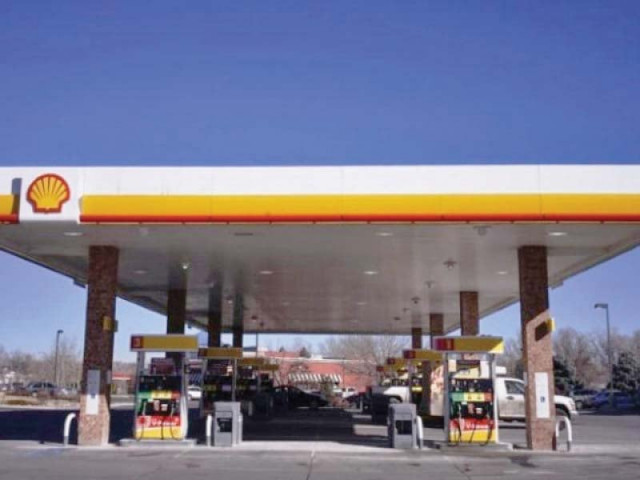Shell seeks to secure profit margins in dollar
Rupee’s depreciation has left devastating impact on businesses, particularly those relying on imports

Oil marketing companies are relying heavily on imported fuel due to little local production from oil fields and in refineries. PHOTO: FILE
With the additional impact from a significant recovery of around 50% in international crude oil prices in the past one year, the effect of rupee depreciation has doubled on many businesses.
Shell plans to invest in white oil pipeline, open modern retail outlets
Oil marketing companies like Pakistan State Oil (PSO), Shell Pakistan and Hascol Petroleum appear to be the direct victims of such developments in domestic and world markets.
In this backdrop, the management of Shell Pakistan - a subsidiary of Royal Dutch Shell Public Limited Company - has approached the Pakistan Tehreek-e-Insaf (PTI) government to allow the downstream industry to secure profit margins in dollar instead of rupee.
“There is a significant exposure of foreign exchange in (profit) margins of oil marketing companies…the companies should be protected from that foreign exchange exposure,” Shell Pakistan Chief Executive Officer Haroon Rashid said in an interview with The Express Tribune.
He elaborated that oil marketing companies were relying heavily on imported fuel due to little local production from oil fields and in refineries. More importantly, the companies pay import bills in US dollars and that too after 30 to 90 days from the day the vessel is anchored at a seaport.
“So, our earnings have been compromised due to forex exposure in our little profit margins and massive rupee depreciation this year,” he said. Pakistan meets almost 70% of its fuel oil requirement through imports, which account for around one-fourth of the annual import bill of the country.
“The entire industry is facing the same phenomenon, including big players like PSO. So, I am a very strong advocate that the government should look into this matter,” he added.
Last time in October 2017, the government had revised upwards the margins of oil marketing companies to a fixed rate of Rs2.41 per litre of petrol and high-speed diesel.
Shell asked the government to improve the margins in order to attract new investment and help run existing businesses in profit.
“The government must ponder that if the oil industry needs to increase fuel standards, then the industry should be given high margins in that proportion, so that it could invest, enhance standards and remain profitable,” Rashid said.
LNG business
The Royal Dutch Shell Group is highly interested in growing its imported liquefied natural gas business in Pakistan as well.
For the purpose, Shell Pakistan, Engro Elengy Terminal, Pakarab Fertilizers and the Gunvor Group established a consortium in 2016 for setting up an LNG terminal of a capacity of 600 million cubic feet per day (mmcfd) at Port Qasim.
In historic drop, rupee weakens 7.54% against US dollar
“LNG is a big project of around $400-500 million. The consortium would like to transform the project into reality by 2020, but things are still at initial stages,” he said.
In recent years, Pakistan has set up two LNG import terminals of 600mmcfd each to cater to growing demand for gas in the absence of local production.
Low sales, market share
The CEO of Shell Pakistan said low sales of fuels had remained a temporary phenomenon in the changing environment where LNG had replaced oil-based power production and businesses were waiting for clarity on economic policies from the new government to make new investments.
Growing population, especially the 30% young population, which would be in one profession or other in the next 5-10 years, holds the key to the growth of Pakistan and the oil industry.
Rashid said Shell Pakistan had 8% market share in oil retail business. “It aims to regain the lost market share, which was 15%, in the next few years with 1-3% growth every year with investment in fuel quality, retail network and oil storage facilities.”
The firm would invest in a range of $30-50 million by 2020 to improve the oil supply chain business, including the opening of up to 100 refuelling stations on various routes including the China-Pakistan Economic Corridor (CPEC).
Published in The Express Tribune, October 17th, 2018.
Like Business on Facebook, follow @TribuneBiz on Twitter to stay informed and join in the conversation.



















COMMENTS
Comments are moderated and generally will be posted if they are on-topic and not abusive.
For more information, please see our Comments FAQ